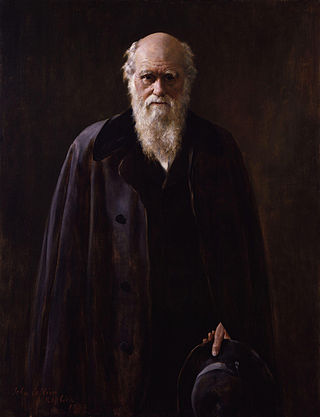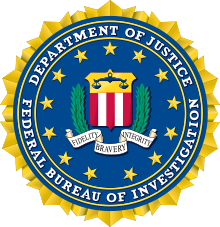
Defamation is a communication that injures a third party's reputation and causes a legally redressable injury. The precise legal definition of defamation varies from country to country. It is not necessarily restricted to making assertions that are falsifiable, and can extend to concepts that are more abstract than reputation – like dignity and honour. In the English-speaking world, the law of defamation traditionally distinguishes between libel and slander. It is treated as a civil wrong, as a criminal offence, or both.
Strategic lawsuits against public participation, or strategic litigation against public participation, are lawsuits intended to censor, intimidate, and silence critics by burdening them with the cost of a legal defense until they abandon their criticism or opposition.

Apple Computer, Inc. v. Microsoft Corporation, 35 F.3d 1435, was a copyright infringement lawsuit in which Apple Computer, Inc. sought to prevent Microsoft and Hewlett-Packard from using visual graphical user interface (GUI) elements that were similar to those in Apple's Lisa and Macintosh operating systems. The court ruled that, "Apple cannot get patent-like protection for the idea of a graphical user interface, or the idea of a desktop metaphor [under copyright law]...". In the midst of the Apple v. Microsoft lawsuit, Xerox also sued Apple alleging that Mac's GUI was heavily based on Xerox's. The district court dismissed Xerox's claims without addressing whether Apple's GUI infringed Xerox's. Apple lost all claims in the Microsoft suit except for the ruling that the trash can icon and folder icons from Hewlett-Packard's NewWave windows application were infringing. The lawsuit was filed in 1988 and lasted four years; the decision was affirmed on appeal in 1994, and Apple's appeal to the U.S. Supreme Court was denied.
Online service provider law is a summary and case law tracking page for laws, legal decisions and issues relating to online service providers (OSPs), like the Wikipedia and Internet service providers, from the viewpoint of an OSP considering its liability and customer service issues. See Cyber law for broader coverage of the law of cyberspace.
Forum shopping is a colloquial term for the practice of litigants taking actions to have their legal case heard in the court they believe is most likely to provide a favorable judgment. Some jurisdictions have, for example, become known as "plaintiff-friendly" and thus have attracted plaintiffs to file new cases there, even if there is little or no connection between the legal issues and the jurisdiction.
A declaratory judgment, also called a declaration, is the legal determination of a court that resolves legal uncertainty for the litigants. It is a form of legally binding preventive by which a party involved in an actual or possible legal matter can ask a court to conclusively rule on and affirm the rights, duties, or obligations of one or more parties in a civil dispute. The declaratory judgment is generally considered a statutory remedy and not an equitable remedy in the United States, and is thus not subject to equitable requirements, though there are analogies that can be found in the remedies granted by courts of equity. A declaratory judgment does not by itself order any action by a party, or imply damages or an injunction, although it may be accompanied by one or more other remedies.
Barrett v. Rosenthal, 40 Cal.4th 33 (2006), was a California Supreme Court case concerning online defamation. The case resolved a defamation claim brought by Stephen Barrett, Terry Polevoy, and attorney Christopher Grell against Ilena Rosenthal and several others. Barrett and others alleged that the defendants had republished libelous information about them on the internet. In a unanimous decision, the court held that Rosenthal was a "user of interactive computer services" and therefore immune from liability under Section 230 of the Communications Decency Act.

In international law and business, patent trolling or patent hoarding is a categorical or pejorative term applied to a person or company that attempts to enforce patent rights against accused infringers far beyond the patent's actual value or contribution to the prior art, often through hardball legal tactics Patent trolls often do not manufacture products or supply services based upon the patents in question. However, some entities, which do not practice their asserted patent, may not be considered "patent trolls", when they license their patented technologies on reasonable terms in advance.
The multinational technology corporation Apple Inc. has been a participant in various legal proceedings and claims since it began operation and, like its competitors and peers, engages in litigation in its normal course of business for a variety of reasons. In particular, Apple is known for and promotes itself as actively and aggressively enforcing its intellectual property interests. From the 1980s to the present, Apple has been plaintiff or defendant in civil actions in the United States and other countries. Some of these actions have determined significant case law for the information technology industry and many have captured the attention of the public and media. Apple's litigation generally involves intellectual property disputes, but the company has also been a party in lawsuits that include antitrust claims, consumer actions, commercial unfair trade practice suits, defamation claims, and corporate espionage, among other matters.
American Well Works Co. v. Layne & Bowler Co., 241 U.S. 257 (1916), was a United States Supreme Court case governing the scope of federal question jurisdiction.
Lexmark International, Inc. v. Static Control Components, Inc., is an American legal case involving the computer printer company Lexmark, which had designed an authentication system using a microcontroller so that only authorized toner cartridges could be used. The resulting litigation has resulted in significant decisions affecting United States intellectual property and trademark law.
The origins of the United States' defamation laws pre-date the American Revolution; one influential case in 1734 involved John Peter Zenger and established precedent that "The Truth" is an absolute defense against charges of libel. Though the First Amendment of the U.S. Constitution was designed to protect freedom of the press, for most of the history of the United States, the U.S. Supreme Court failed to use it to rule on libel cases. This left libel laws, based upon the traditional "Common Law" of defamation inherited from the English legal system, mixed across the states. The 1964 case New York Times Co. v. Sullivan, however, radically changed the nature of libel law in the United States by establishing that public officials could win a suit for libel only when they could prove the media outlet in question knew either that the information was wholly and patently false or that it was published "with reckless disregard of whether it was false or not". Later Supreme Court cases barred strict liability for libel and forbade libel claims for statements that are so ridiculous as to be obviously facetious. Recent cases have added precedent on defamation law and the Internet.
Microsoft has been involved in numerous high-profile legal matters that involved litigation over the history of the company, including cases against the United States, the European Union, and competitors.

The Online Copyright Infringement Liability Limitation Act (OCILLA) is United States federal law that creates a conditional 'safe harbor' for online service providers (OSP), a group which includes Internet service providers (ISP) and other Internet intermediaries, by shielding them for their own acts of direct copyright infringement as well as shielding them from potential secondary liability for the infringing acts of others. OCILLA was passed as a part of the 1998 Digital Millennium Copyright Act (DMCA) and is sometimes referred to as the "Safe Harbor" provision or as "DMCA 512" because it added Section 512 to Title 17 of the United States Code. By exempting Internet intermediaries from copyright infringement liability provided they follow certain rules, OCILLA attempts to strike a balance between the competing interests of copyright owners and digital users.

In July 2009, lawyers representing the National Portrait Gallery of London (NPG) sent an email letter warning of possible legal action for alleged copyright infringement to Derrick Coetzee, an editor/administrator of the free content multimedia repository Wikimedia Commons, hosted by the Wikimedia Foundation.

A copyright troll is a party that enforces copyrights it owns for purposes of making money through strategic litigation, in a manner considered unduly aggressive or opportunistic, sometimes without producing or licensing the works it owns for paid distribution. Critics object to the activity because they believe it does not encourage the production of creative works, but instead makes money through the inequities and unintended consequences of high statutory damages provisions in copyright laws intended to encourage creation of such works.
Apple Inc. v. Samsung Electronics Co., Ltd. is the general title of a series of patent infringement lawsuits between Apple Inc. and Samsung Electronics in the United States Court system, regarding the design of smartphones and tablet computers. Between them, the two companies have dominated the manufacturing of smartphones since the early 2010s, and made about 40% of all smartphones sold worldwide as of 2024. In early 2011, Apple began litigating against Samsung in patent infringement suits, with Samsung typically filing countersuits with similar allegations. Apple's multinational litigation over technology patents became known as part of the smartphone wars: extensive litigation and fierce competition in the global market for consumer mobile communications.

College Network, Inc. v. Moore Educational Publishers, Inc., No. 09-50596 was an unpublished appellate level case in the Fifth Circuit that upheld a district court jury decision to dismiss the purchase of trademarked keywords as infringing. The original suit was brought on a claim of trademark infringement in the purchase of certain advertising keywords that the defendant countered with claims of defamation and tortious interference, also known as intentional interference with contractual relations. The main issue addressed in the appeal was the sufficiency of the evidence presented in the counterclaims of the defendant. The court upheld the lower court's ruling, but vacated the award for tortious interference.
Google has been involved in multiple lawsuits over issues such as privacy, advertising, intellectual property and various Google services such as Google Books and YouTube. The company's legal department expanded from one to nearly 100 lawyers in the first five years of business, and by 2014 had grown to around 400 lawyers. Google's Chief Legal Officer is Senior Vice President of Corporate Development David Drummond.

The following is a list of notable lawsuits involving former United States president Donald Trump. The list excludes cases that only name Trump as a legal formality in his capacity as president, such as habeas corpus requests.








